Squid Game Episodes, Ranked from Worst to Best
The new Netflix series Squid Game is already fast on its way to becoming the streaming platform's most watched show of all time. What sets Squid Game apart from other shows on the platform is the underlying tension and anxiety about endemic structural class inequality. The story, told across the nine episode series, is that a group of people are brought to an unknown location where they have a chance to play a series of dangerous games for money.
All of them have, for one reason or another, found themselves in dire straits when it comes to their own economic situation. It is that precarity that encourages them to do whatever it takes for the chance to win millions, even if it means losing their lives in the process. It taps into a depressing, but accurate assessment of how desperate the world is for many.
The series has some lulls and low points, though on the whole remains a fascinating story that is worth checking out. To evaluate what works and what doesn’t, here is a ranking of all the Squid Game episodes that have been released thus far. While this piece won’t reveal all the big final plot points, it will discuss most of the key details that play out across the episodes and the way in which some of the games are set up.
Spoilers Ahead
9. Ep 2: "Hell"
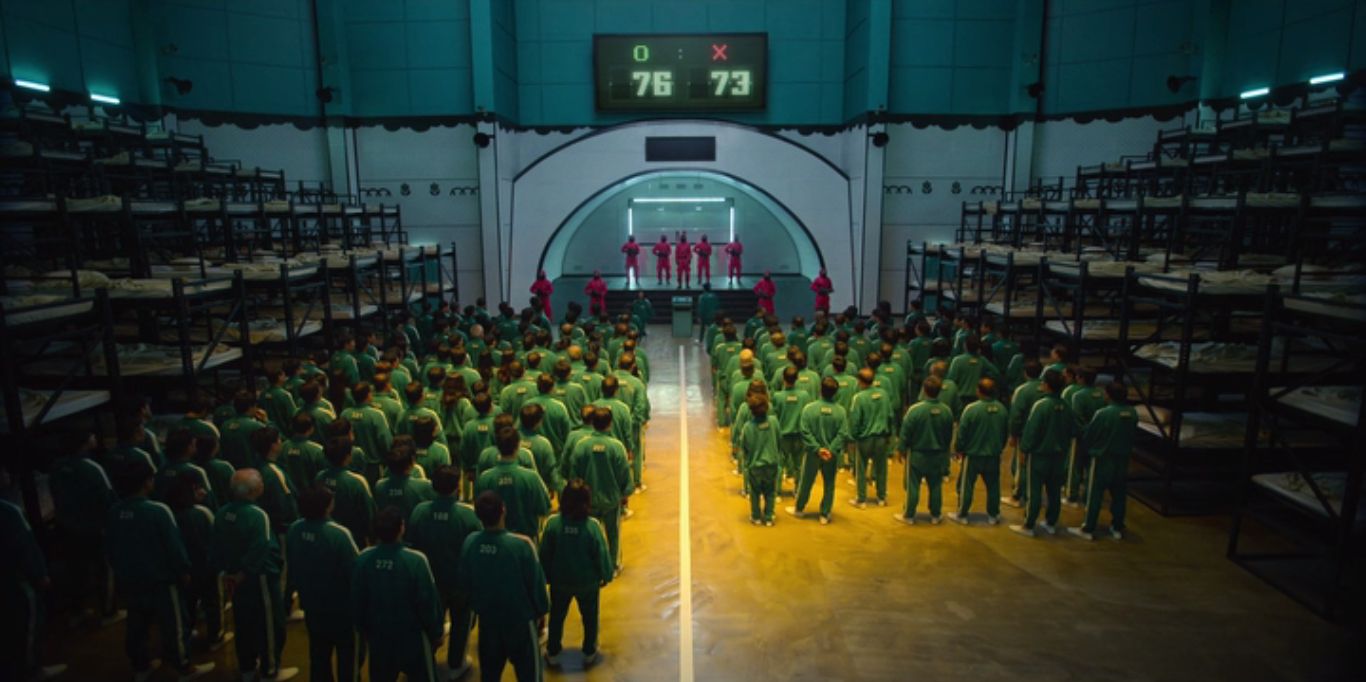
This episode is unfortunately the weakest of the bunch, as all the problems of the first episode are magnified. Through a rule that allows players to vote to leave, they narrowly decide to do so. Upon leaving, Seong Gi-hun (Lee Jung-jae) discovers his mother is experiencing a medical emergency. The depressing reality of what they find upon going home similarly crushes the other competitors who left. There is Gi-hun’s childhood friend Cho Song-woo (Park Hae-soo), North Korean defector Kang Sae-byeok (Jung Ho-yeon), the gangster Jang Deok-su (Heo Sung-tae), the eccentric Han Mi-nyeo (Kim Joo-ryung), and Ali (Anupam Tripathi) who gets in a fight at work with his boss who has been exploiting his labor without paying him for it.
There is a poetic conversation Gi-hun has with an old man (Oh Young-soo) from the game when he serendipitously finds him on the street. That conversation brings about the key revelation that “out here, the torture is worse.” It all begins to pick up from here when they all make the choice to reenter the game.
8. Ep 1: "Red Light, Green Light"
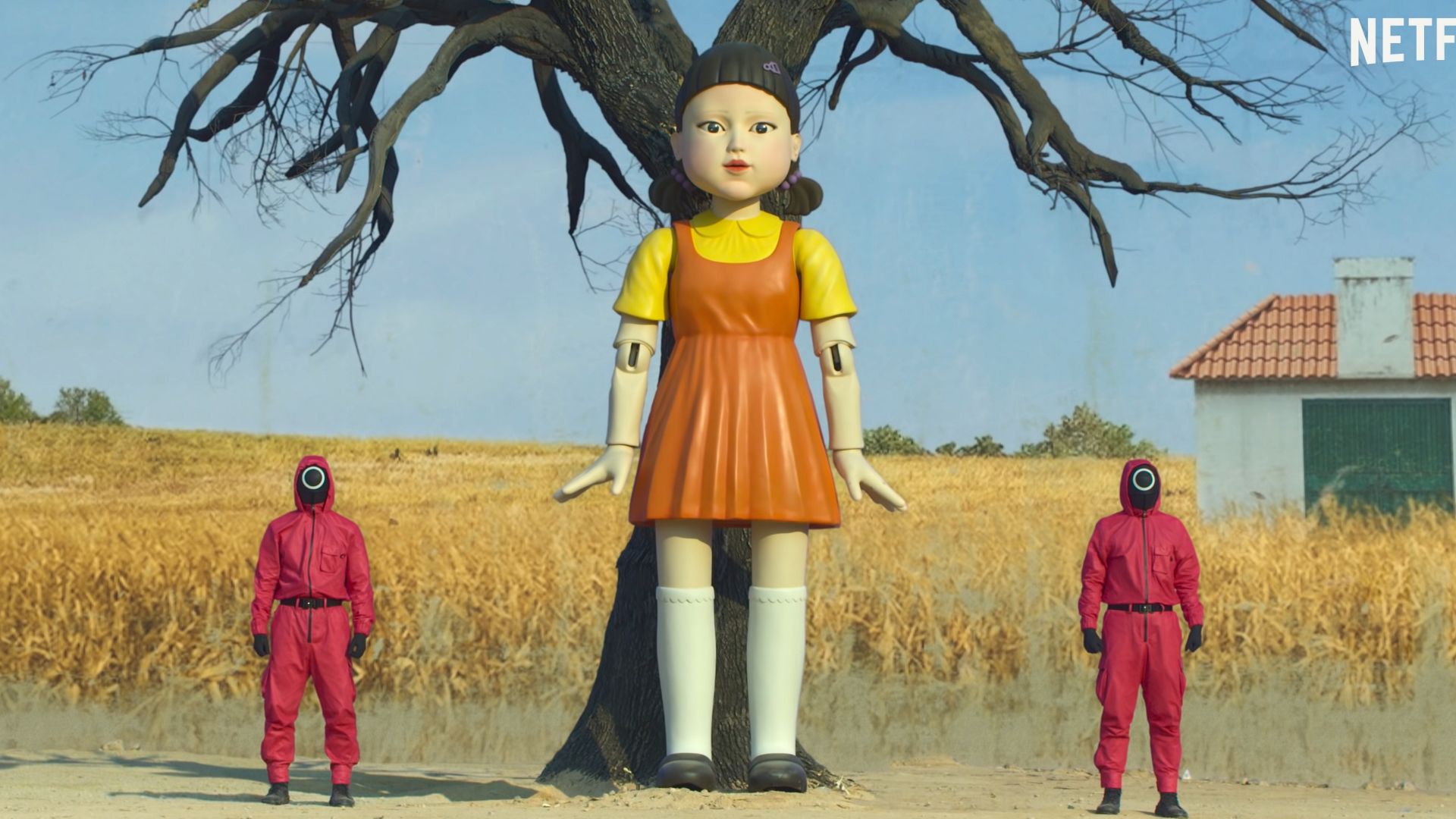
The first episode is the one that sets everything in motion and is where the series is beginning to figure out its voice. This episode does drag a bit. It spends a lot of time introducing the details of its characters, making sure they are all thoroughly fleshed out. It begins to get a little lost in the weeds and loses some of the subtlety that could have been experienced with more nuance about where the characters come from.
The best part of this episode is the game, as it establishes the stakes with a terrifying precision, killing off more than half of the competitors. It is a well-executed sequence that does make for one of the more memorable games, though it is unfortunately bogged down by some of the drudgery of the beginning of the episode. This is a case where brevity can be the soul of wit, though it is somewhat redeemed by the conclusion that gets everything back on track.
7. Ep 3: "The Man with the Umbrella"
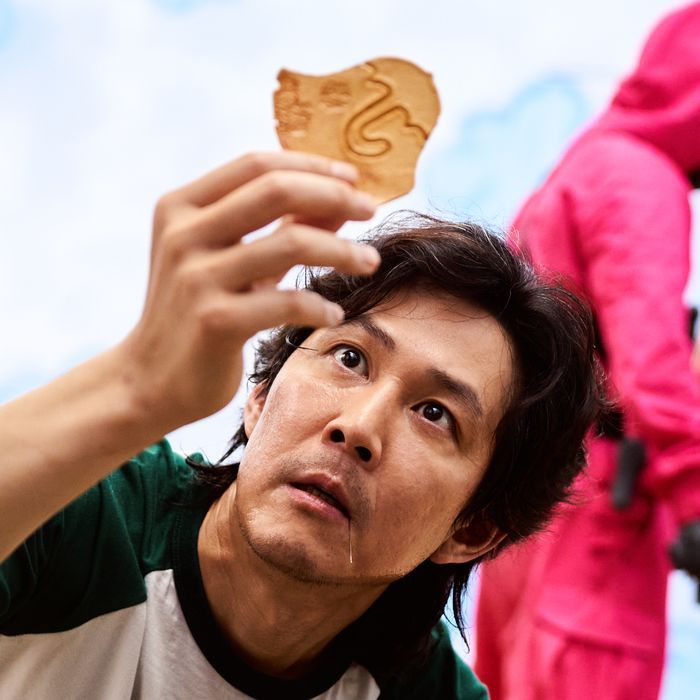
In an episode that might as well be called “Here We Go Again,” most of the competitors reenter the game. A rogue police officer named Hwang Jun-ho (Wi Ha-Joon) has managed to sneak in. This episode also sees Sae-byeok taking the initiative, a refreshing development for her character, when she uncovers a hint of what the next game will be. The most stripped down, individualistic game requires players to carve out a shape from Dalgona candy. The candy is fragile, so it is easy to break and damage the shape. If that happens, you lose and are immediately shot by the guards.
It all ends with a man who was unable to complete the challenge in time and steals a gun from a guard before taking a hostage. The rest of the guards have him pinned down, so he asks his hostage to remove his mask. He seems horrified by the fact that the guard who would have killed him without a second thought is so young and shoots himself in the head. The mysterious figure in charge of the whole game, The Front Man (Lee Byung-hun), shoots the guard himself as his identity had been revealed to one of the competitors.
6. Ep. 4: "Stick to the Team"
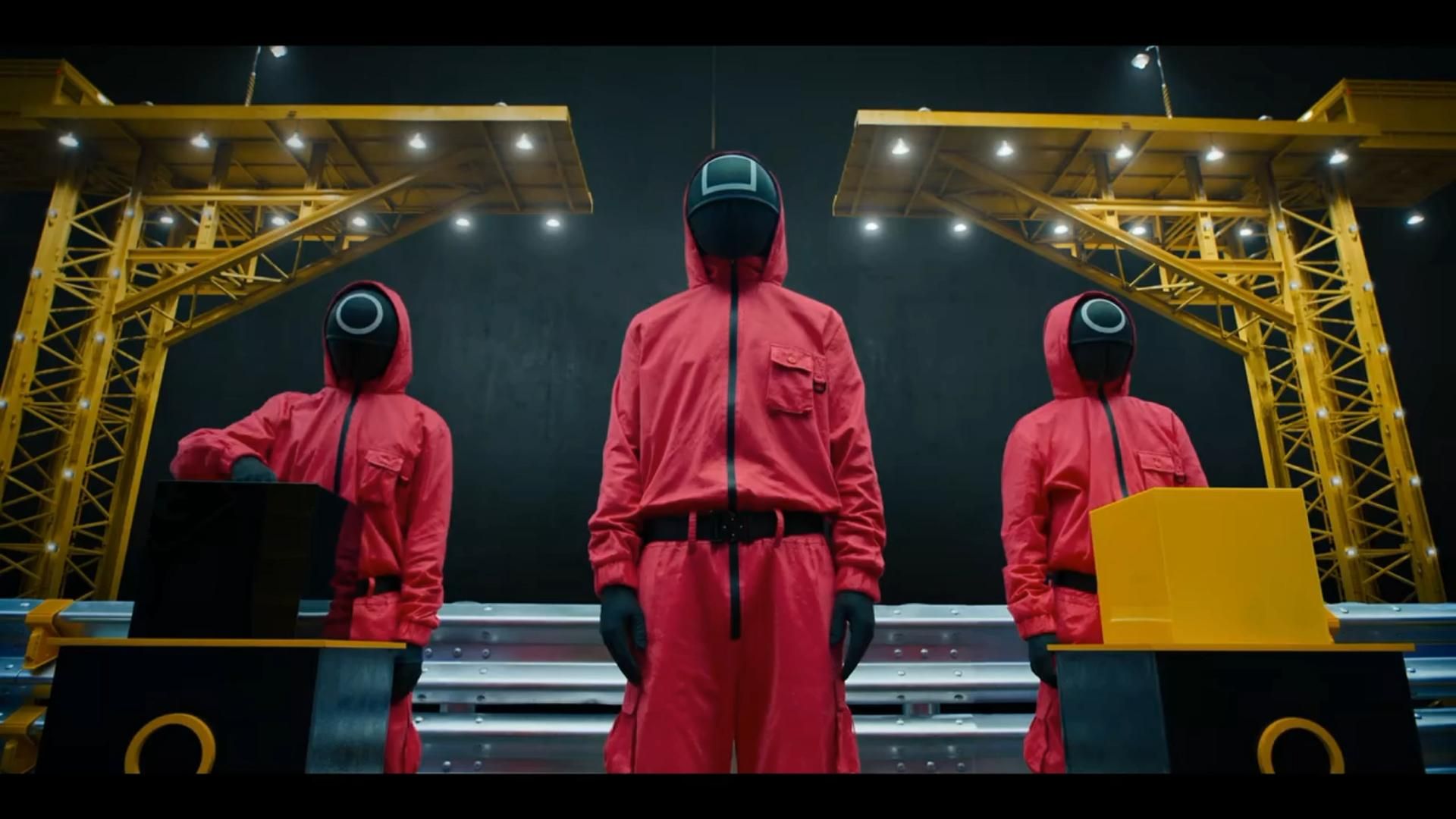
When they return, the competitors are given meals and it appears as though someone took extra. The finger is immediately pointed at Deok-su’s group, as they are widely seen as the “bullies” of the game. A fight breaks out, and a man dies. It is revealed that when he takes his last breath, money is added to the pot overhead. It is a nightmarish realization as it incentivizes people to kill each other to get more money at the end of the game.
This episode also introduces a storyline where certain guards are attempting to harvest organs from competitors in order to sell them. It all feels largely disconnected from the more consistently interesting elements of the story. That main story is still engaging and makes use of the most common game thus far: tug of war. It is a heartbreaking game, as they kill the other players more directly. It speaks to the cutthroat world they have been forced to accept, where it is killed or be killed.
5. Ep 5: "A Fair World"
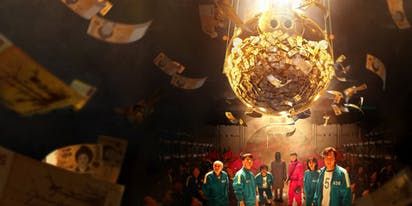
This is where the story begins to hit its stride and find a confidence that it will build off in each subsequent episode. In particular, there is a moment where, while on watch against other players, Gi-hun has a vision from his past. During the night of a workers’ strike that he was participating in, he recalls how the strike was broken up with tear gas and riot police committing acts of violence. It fills in the gaps of Gi-hun’s life with a delicate subtlety through a haunting visual sequence that is one of the high points of the series.
While all that is going on, the body harvesting goes off the rails and the doctor, who was also a competitor, gets killed when they won’t tell him what their next game is. It is all over before it gets anywhere interesting, though it brings to a close a storyline that seemed to have written itself into a corner. Still, we are reaching the end game now and it still just keeps getting better from here on out.
4. Ep. 6: "Gganbu"
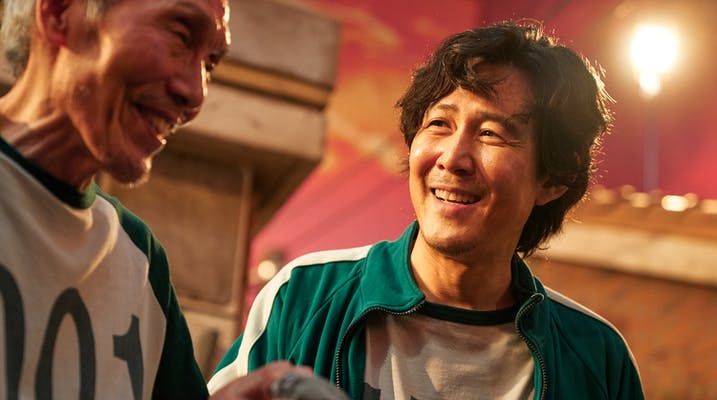
Gganbu, something the show says means “good friend,” has the most interesting game with how it reveals details about its characters. They are informed they must split off into groups of two. Thinking that the person will be who they compete with, Gi-hun initially is reluctant to partner with the old man but does so out of kindness. They actually must compete against each other and only one can come out alive. Every moment of their performance is devastating.
Notably, the scenes between Sae-byeok and Ji-yeong (Lee Yoo-mi) are also some of the best. Sae-byeok had recruited Ji-yeong to join the team for the tug of war and the two agree to talk together. They find a quiet dignity in just sharing their lives. It ends with Ji-yeong purposely losing an all-or-nothing game, then accepting her death to let Sae-byeok continue on. It is a beautifully fitting end and a final act of ultimate kindness amidst the chaos.
3. Ep. 7: "VIPs"
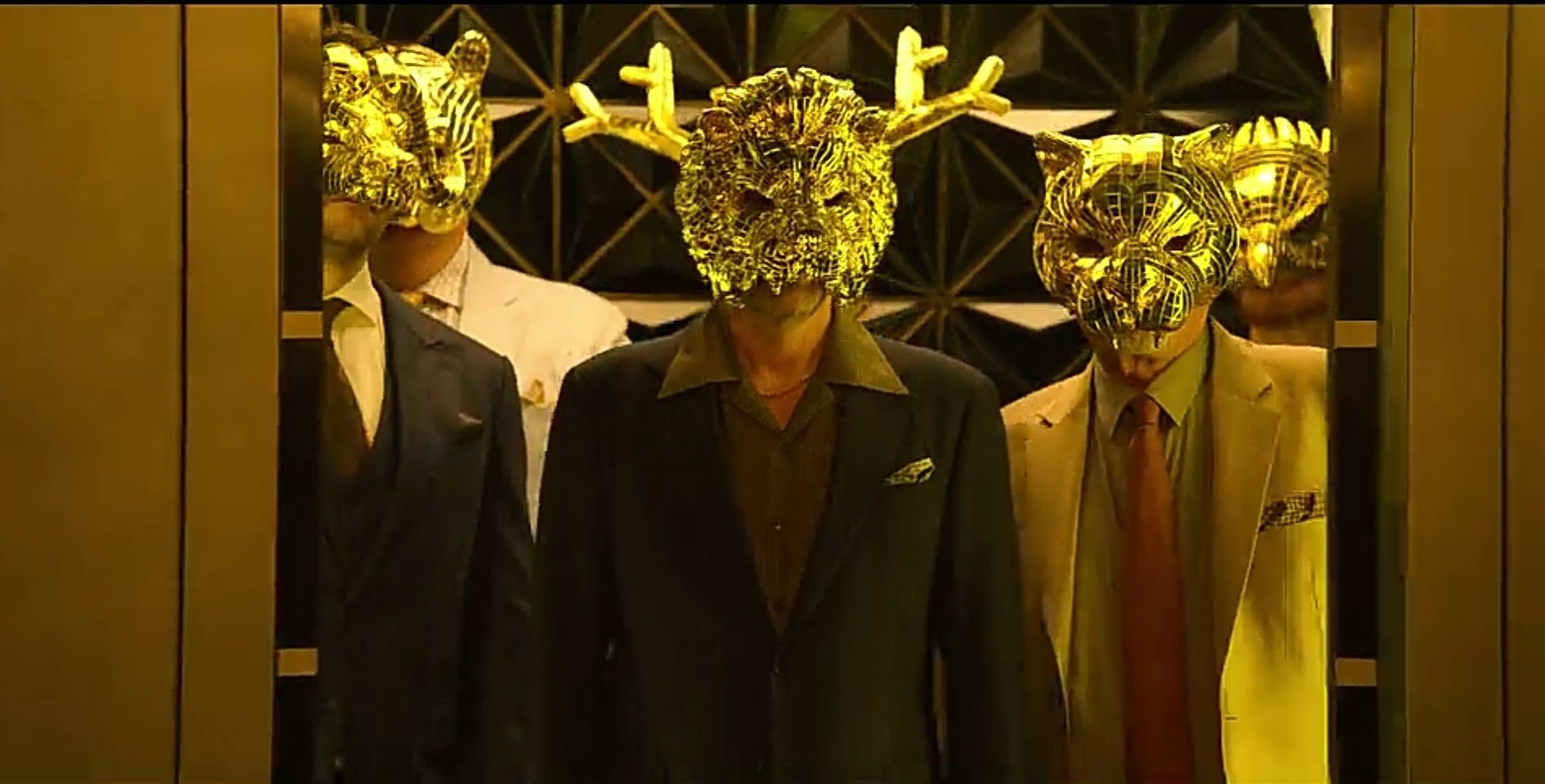
In this episode, a group of VIPs arrive on scene, there to watch the final games in-person. They are authentically portrayed as disgusting and vile, a wealthy group of uncaring man-children who revel in the spectacle they have created. It is revealed that the next game is a bridge of glass, where one part is made of tempered glass that will hold the weight of two people while one will shatter immediately if even one person steps on it.
The competitors will have to jump across it and take a leap of faith every time. Guess wrong, and they fall to their death. Gi-hun gets lucky, having picked to go last. It ends up being Gi-hun, Sang-woo, and Sae-byeok as the sole survivors to move on to the next competition. The three characters are all bolstered by strong performances and help make it so these final two episodes are the best of the series. It is their fate that you get completely invested in.
2. Ep. 8: "Front Man"
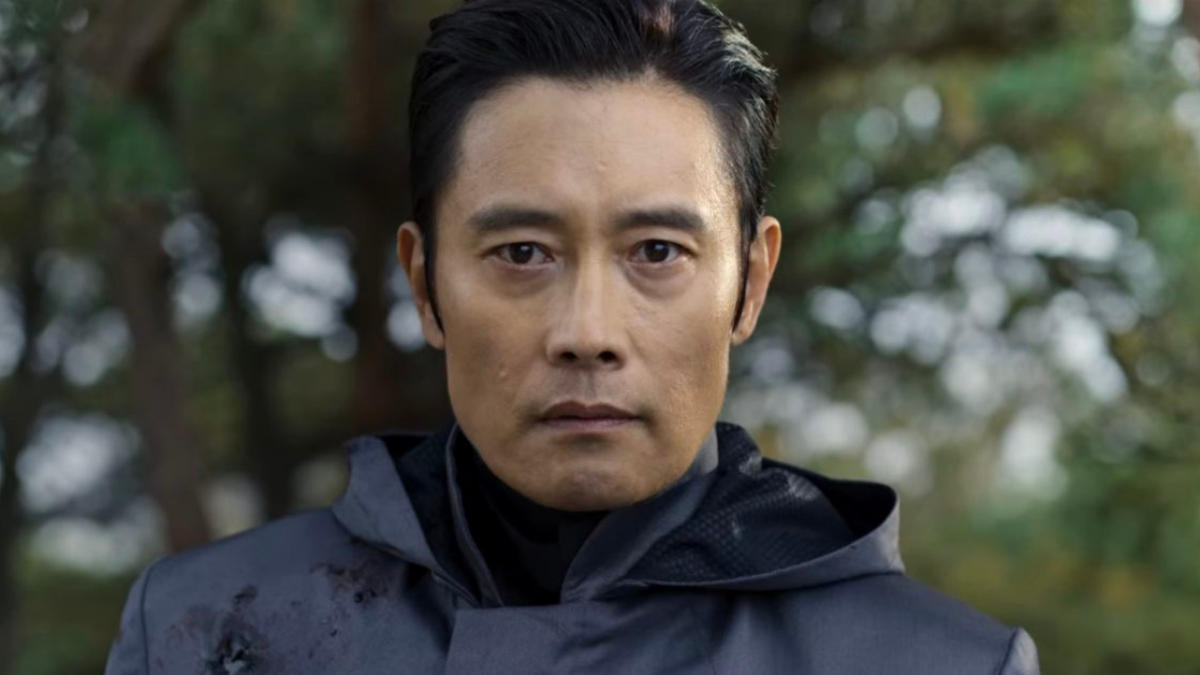
This episode is the shortest of the series. In some ways a bottle episode, it focuses on Gi-hun, Sang-woo, and Sae-byeok all returning to the main room where only three beds remain. The three remaining contestants are all given one knife from their dinner to take with them back to bed.
While Gi-hun is away, Sang-woo sneaks over to slit Sae-byeok’s throat. Horrified and furious, Gi-hun tries to get vengeance, but is stopped by the guards. There is one final game that all this has been building to. This particularly well constructed episode is only the second best because the ending is just so perfect.
1. Ep. 9: "One Lucky Day"
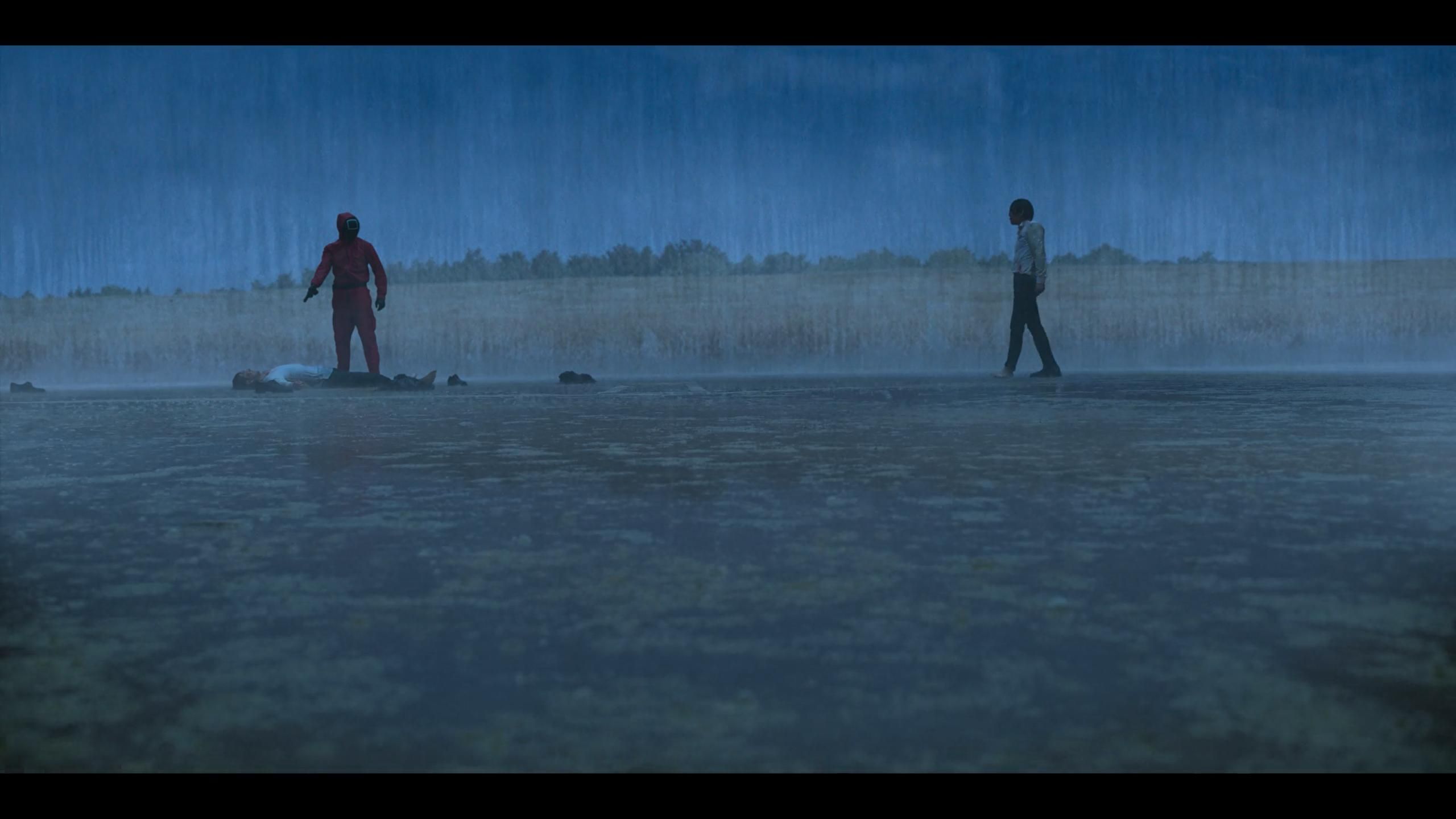
The best episode of the series by far, it is an outstanding conclusion and a continual gut punch from one moment to the next. The final confrontation between the two childhood friends is perfectly staged and acted. Even as it is masterfully crafted, it is no less brutal. The two remaining contestants take part in a simple game that ends up being a fitting final one. It becomes much more about the two men and whether they are willing to commit extreme acts of violence over this final pot of money.
The finale concludes by seeing the emotional impact the games have on Gi-hun. His growth, from being a misguided gambler trying to care for those he loves into this broken down man, is the most cogent takeaway of all. However, there is one final scene that speaks to the series' prevailing pessimism mixed with a cautious optimism. There is kindness that emerges from the bottomless pit of darkness and pushes back on the inevitability of our own callousness towards each other. There is still a rage against those who ran the game and it is that righteous anger that leaves open a possibility for revolution. It ends the series on a high note, both for the characters and ourselves as viewers.


التعليقات على الموضوع